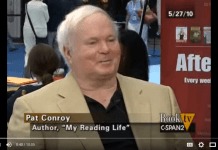 Fiction eBooks have by and large come a long way from being merely viewed as cheap imitations of ‘real’ novels to an entirely new industry, and yet the best-selling genres seem to have remained the same as their paper counterparts. After browsing the top ten eBook-purveying websites–including the Kindle Store–I sifted through the most popular titles being sold on each and compiled the following Top Ten Best-Selling eBook Genres list for 2011 Thus Far:
Fiction eBooks have by and large come a long way from being merely viewed as cheap imitations of ‘real’ novels to an entirely new industry, and yet the best-selling genres seem to have remained the same as their paper counterparts. After browsing the top ten eBook-purveying websites–including the Kindle Store–I sifted through the most popular titles being sold on each and compiled the following Top Ten Best-Selling eBook Genres list for 2011 Thus Far:
1. Romance Fiction
2. Thriller Fiction
3. Fiction stories with/about Weddings (Romance Fiction)
4. Paranormal Fiction
5. Fantasy Fiction
6. Historical Fiction
7. Detective/Spy Fiction
8. Techno Guides/ Manuals/ ____ for Dummies
9. Historical/ Biographical
10. Literary Fiction
As far as I can ascertain, the very first “digital” book was a fictional, satirical essay–penned way back in 1872 by one Thomas de Quincy–re-published in Digital Book Format in 1993. Ever since that fateful year unknown, undiscovered writers have leaped onto the growing, bustling quay of eSales Island, not minding that the streets are already lined with other authors hawking their wares from virtual tables. The volume of foot traffic alone makes the endeavor worthwhile, especially in the Fiction Quarter, a section to which the digital tourists flock first. Even in the paper-publishing world fiction dominates the list of best-selling books of all time.
Aside from asking folks why they prefer fiction over non, I can guess that the facet of added imagination has a great deal to do with the enjoyment of reading a made-up tale. As a a book reviewer, I only select non-fiction titles to write opinions of being that I enjoy learning about topics concerning real life; in a similar fashion, as an indie writer, fiction was not my first choice of genre. Only the lure of actually selling books led me to pen any at all, for one cannot argue with the impressive annual sales figures that the genre seems to wear like a glistening, golden scarf.
Soon after opening a web-based eBook store my husband and I found that folks that buy eBooks are largely uninterested in humor/memoirs, biographies or satire. Consumers wanted fiction–inexpensive fiction–and we set out on a five novel, three year experiment on whether or not simply adding a few fiction titles would increase our meager sales. It worked. Customer came, they saw and they purchased, emailing friends and family to do the same. With quite a bit of weekly work on my part to promote the titles in a non-invasive way the sites still pay for themselves and bring home a bit o’ bacon, despite the seemingly unending flow of new indie writers running to the market each month. Adding a few more titles in other genres helped our sales a little, but the romance fiction titles yet remain our best-sellers.
Several customers found our site by patiently clicking through lists of results after Googling the words “indie fiction ebook”, something I found to be a rather heartening fact. Unlike some industry opinions being hurled about the Net today—voicing fears of books become extinct or the lack of browsers—I’ve witnessed eBooks being purchased as gifts, sought and routed out from the darkest corners of the net and given free, jubilant press simply for being rather well-written and purchase-able. In perusing lists of successful, selling-more-than-$1000-a-month-in-eBooks indie writers, nearly all the titles sold are fiction.
Certainly the net harbors some bad apples–indeed several if judging by the eCovers–but take heart; inferior eFiction does not provoke repeat visits or referrals and eventually is relegated to the virtual dustbin. Consumers have proven themselves both willing and able to generate online reviews (and seem to find it an adequate outlet for having bought disappointing prose). On the other hand good, glowing eReviews are the stuff dreams are made of, setting the piece in question on a slightly higher shelf of the digital rack.
Does offering a fiction eBook title on your landing page/eStore guarantee sales? No… but seems to help a great deal.
Via Meredith Greene’s Greene Ink

































Almost all your listed genres are really popular with female readers so it’s not surprising they are your best sellers.
In the mid-Nineties, I was part of the first big wave of the indie ebook press when small publishers like Hard Shell were just entering an essentially nonexistent market.
Almost all the publishers specialized in romance because, at the time, this market was growing, but the so-called formula was stagnant and the big conglomerates who had just bought out most of the romance publishers were paring down popular romance niches because decent sales numbers weren’t big enough by their standards.
Romance readers were hungry for paranormals (this was before the mad rush of the vampires), science fiction romance, romances that were a bit different, and historicals set outside the standard settings. So hungry, in fact, they were willing to buy digital books and read them on their computers.
Meanwhile, those of us who braved this new world as authors were educating readers on all things ebook on the reading lists, and we were showing off our Rocketbook ebook readers at romance conventions or showing how you could read it on your PDA or cell phone.
My books were some of the first at Fictionwise, and a vast majority of its books were from indies because the conglomerates weren’t willing to enter the market.
Gradually, we built an educated audience who branched out into other genre popular to romance readers so those lists grew.
Ironically, the popularity of science fiction among the pirate usernet crowd kept many publishers out of this market with only Double Dragon being the soul provider of these books for years.
By the time erotica entered the picture, there was an educated base of female readers who brought other readers in as this market exploded.
It was only then that the conglomerates started getting serious about this market.
The early years of e-book publishing seem to have been interesting. Having been in the science fiction and fantasy (SF/F) community in the 1990s, the e-press I remember (at least from report, not from having actually visited its Website) is Bibliobytes, founded in 1993, which published various sorts of genre fiction. There’s some discussion of its business model in this thread at TeleRead. One of its founders, Glenn Hauman, was waving the e-book banner in the “SFWA Bulletin” at the turn of the millennium. It was through his column that I first learned of the existence of e-books.
I didn’t actually begin to seek out e-books until 2001, when I became partially sighted. By that time, the major SF/F press Baen Books was e-publishing. However, I’d discovered SF/F e-zines before then; I began submitting stories to them in 2000. And I’d started my own e-zine back in 1997; it may have been the first English-language interfaith news e-zine. At any rate, no others existed at the time I founded it.
Back then, there just wasn’t as hard a divide between e-zine writings and e-books, since some e-book publishers were selling access to Web fiction. Some still do.